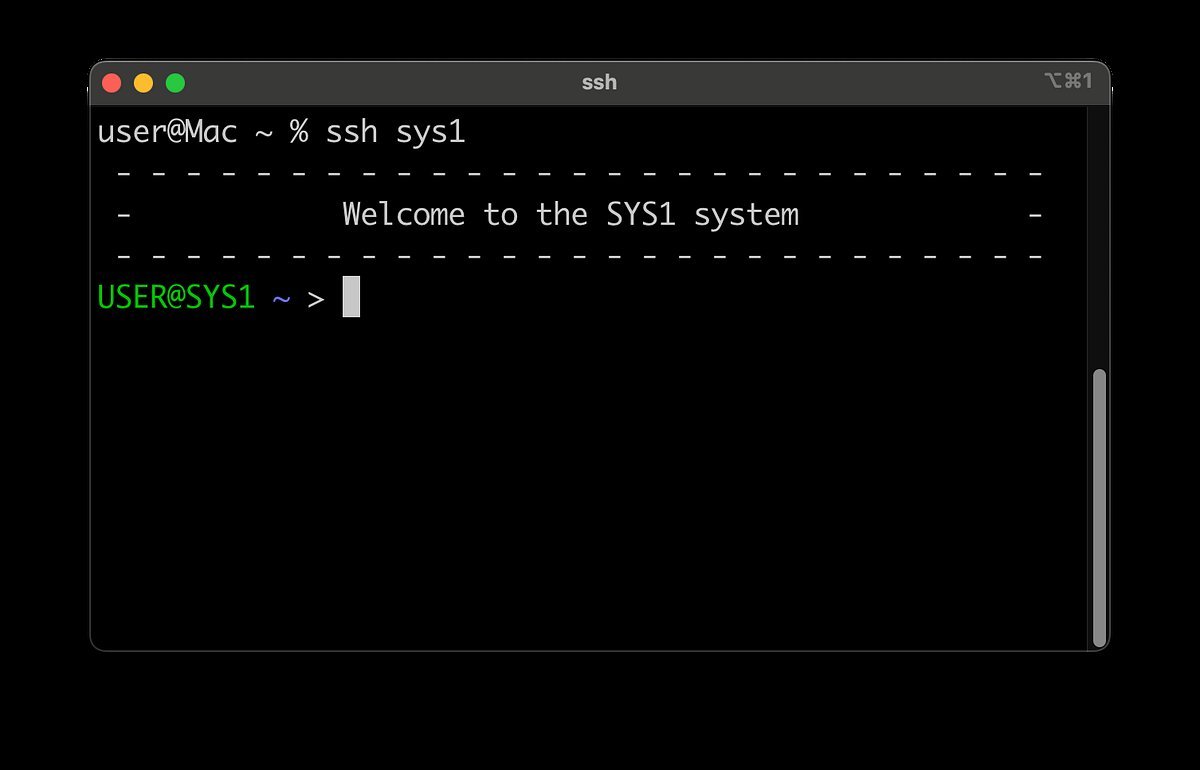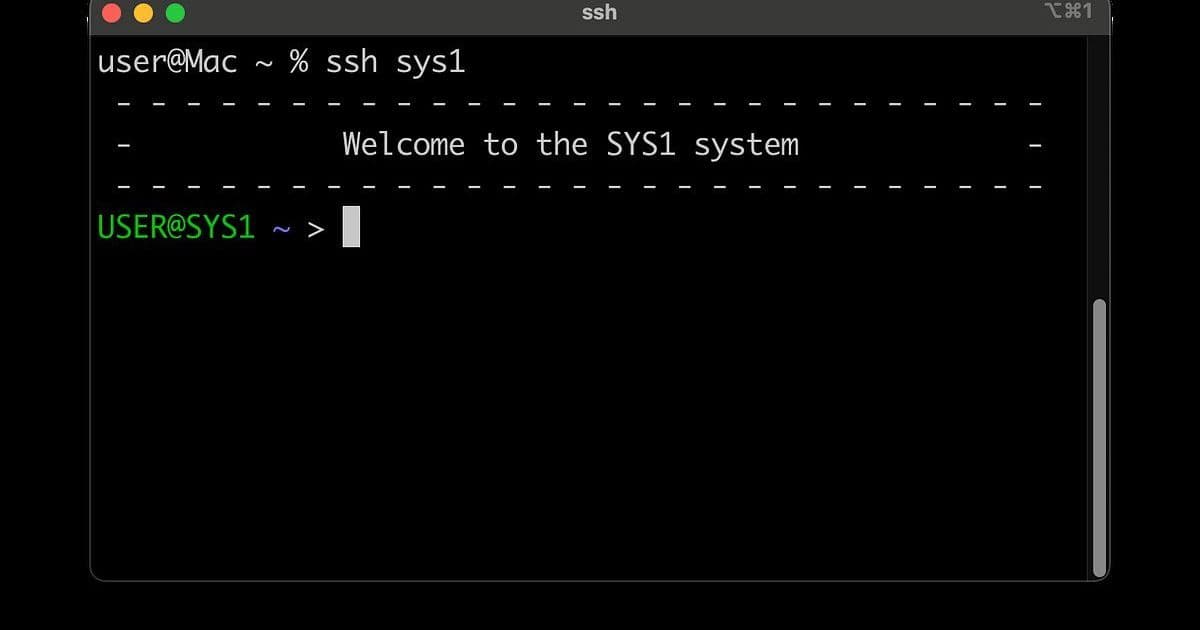For decades, z/OS UNIX has been hampered by outdated interfaces like OMVS and ISHELL, alienating a new generation of developers. This guide reveals how to transform your mainframe shell into a powerful, SSH-driven environment with Bash, Python, and open-source tools to boost productivity and retain talent. Learn the critical configurations that make z/OS UNIX a first-class citizen in today’s tech landscape.

In the world of mainframes, z/OS UNIX has long been relegated to second-class status. Introduced in 1994, it’s often accessed through archaic 3270-based interfaces like OMVS and ISHELL—tools that feel alien to developers raised on Linux and modern shells. As Leonard Carcaramo Jr. argues in his comprehensive guide, this disconnect isn’t just a usability issue; it’s a talent retention crisis. New developers, accustomed to SSH and intuitive shells, find ISPF clunky and limiting. Worse, it stifles adoption of modern tools designed for UNIX-like environments. If enterprises want to attract and keep tech talent, a fully optimized z/OS UNIX shell isn’t optional—it’s essential.
Why OMVS and ISHELL Fall Short
Traditional z/OS interfaces are more than just relics—they’re productivity killers. OMVS and ISHELL operate as "dumb terminals," stripping away features Linux users take for granted: command history, tab completion, and ANSI color support. Attempts to use arrow keys often yield cryptic errors like FSUM7351 not found, as shown in the image above. This forces users into inefficient workflows, discouraging innovation. David Rice’s experience in converting his team to SSH underscores the urgency: SSH isn’t just preferred; it’s the industry standard for secure, flexible server access.
The Foundation: SSH and Bash
SSH is the non-negotiable starting point. It provides encrypted access, supports key-based authentication (often more secure than TN3270), and enables full terminal capabilities. But SSH alone isn’t enough. The default z/OS shell (/bin/sh) lacks modern amenities, making tasks like scripting or debugging needlessly arduous.
The solution? Tools like zopen community (an Open Mainframe Project initiative) or IBM’s Open Enterprise Foundation for z/OS (OEF). Both deliver Bash—a shell that restores sanity with features like command history and customizable prompts. As Anthony Giorgio details in The Bash Shell on z/OS®, this shift is transformative. OEF offers IBM-supported versions of key tools (Bash, Vim, Git), while zopen provides nearly 300 open-source ports, empowering users to handle tasks previously requiring ISPF or JCL.
Configuring the Core: /etc/profile
Simply installing tools isn’t sufficient—system-wide configuration via /etc/profile ensures consistency. Here’s the critical setup, distilled from Carcaramo’s recommendations:
# Encoding and tagging - avoid cryptic errors
export _BPXK_AUTOCVT=ON
export _CEE_RUNOPTS='FILETAG(AUTOCVT,AUTOTAG) POSIX(ON)'
export _TAG_REDIR_ERR=txt
export _TAG_REDIR_IN=txt
export _TAG_REDIR_OUT=txt
# zopen/OEF paths - centralize tool access
export ZOPEN_HOME=/usr/local/zopen/usr/local # Use /usr/lpp/IBM/foz/v1r1 for OEF
export PATH=${ZOPEN_HOME}/bin:$PATH
export LIBPATH=${ZOPEN_HOME}/lib:$LIBPATH
export MANPATH=${ZOPEN_HOME}/share:$MANPATH
# Python - for modern automation
export PYTHON_HOME=/usr/lpp/IBM/cyp/v3r13/pyz
export PATH=${PYTHON_HOME}/bin:$PATH
export LIBPATH=${PYTHON_HOME}/lib:$LIBPATH
# ZOAU - shell utilities for z/OS tasks
export ZOAU_HOME=/usr/lpp/IBM/zoau/v1r3
export PATH=${ZOAU_HOME}/bin:$PATH
export PYTHONPATH=${PYTHONPATH}:${ZOAU_HOME}/lib
# Shell prompt - informative and colored
export PS1="\e[32m\u@\h\e[0m \e[94m\w\e[0m > " # Omit ANSI for 'dumb' terminals
# Security basics
eumask 022 # Restrict default file permissions
# Terminal compatibility - prevent 'FSUM6202' errors
case "$TERM" in
"xterm"*) export TERM=xterm # Fixes issues with xterm variants
esac
# Launch Bash for interactive sessions
if tty -s; then
exec bash
fi
Key additions:
- Python: Frank de Gilio’s advocacy for Python highlights its role in replacing JCL/REXX for automation, making z/OS scripting accessible.
- ZOAU: Enables SSH users to manage datasets, submit jobs, and more—without touching a 3270 emulator.
- Prompt Customization: A colored PS1 (e.g.,
user@host /path >) enhances readability. The conditionaltty -scheck ensures non-interactive processes (like batch jobs) aren’t broken.
Why This Matters: Beyond Convenience
Ignoring this setup has tangible costs. New developers, faced with a subpar shell, may flee to cloud or Linux roles. Conversely, a modern environment unlocks:
- Standardization: Tools like OpenXL (IBM’s Clang-based compiler) align z/OS with Linux development practices, easing open-source porting.
- Security: A strict
umaskand SSH keys reduce vulnerabilities. - Innovation: Python and ZOAU enable infrastructure-as-code workflows, integrating mainframes into DevOps pipelines.
As Carcaramo urges, this isn’t about nostalgia—it’s about survival. By embracing these changes, sysprogs can turn z/OS UNIX from a relic into a recruitment asset, ensuring mainframes remain relevant in an era defined by developer experience.
Source: Setting Up the z/OS UNIX Shell (Correctly & Completely) by Leonard Carcaramo Jr.

Comments
Please log in or register to join the discussion